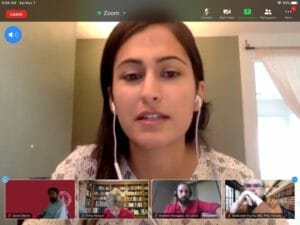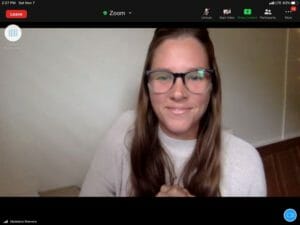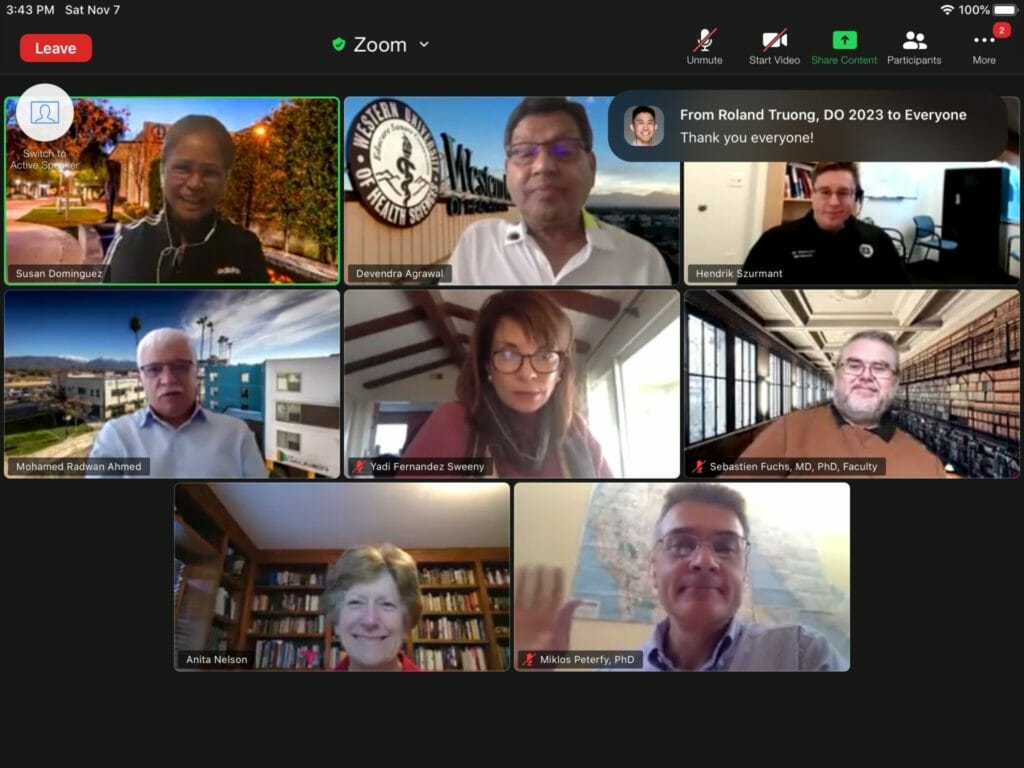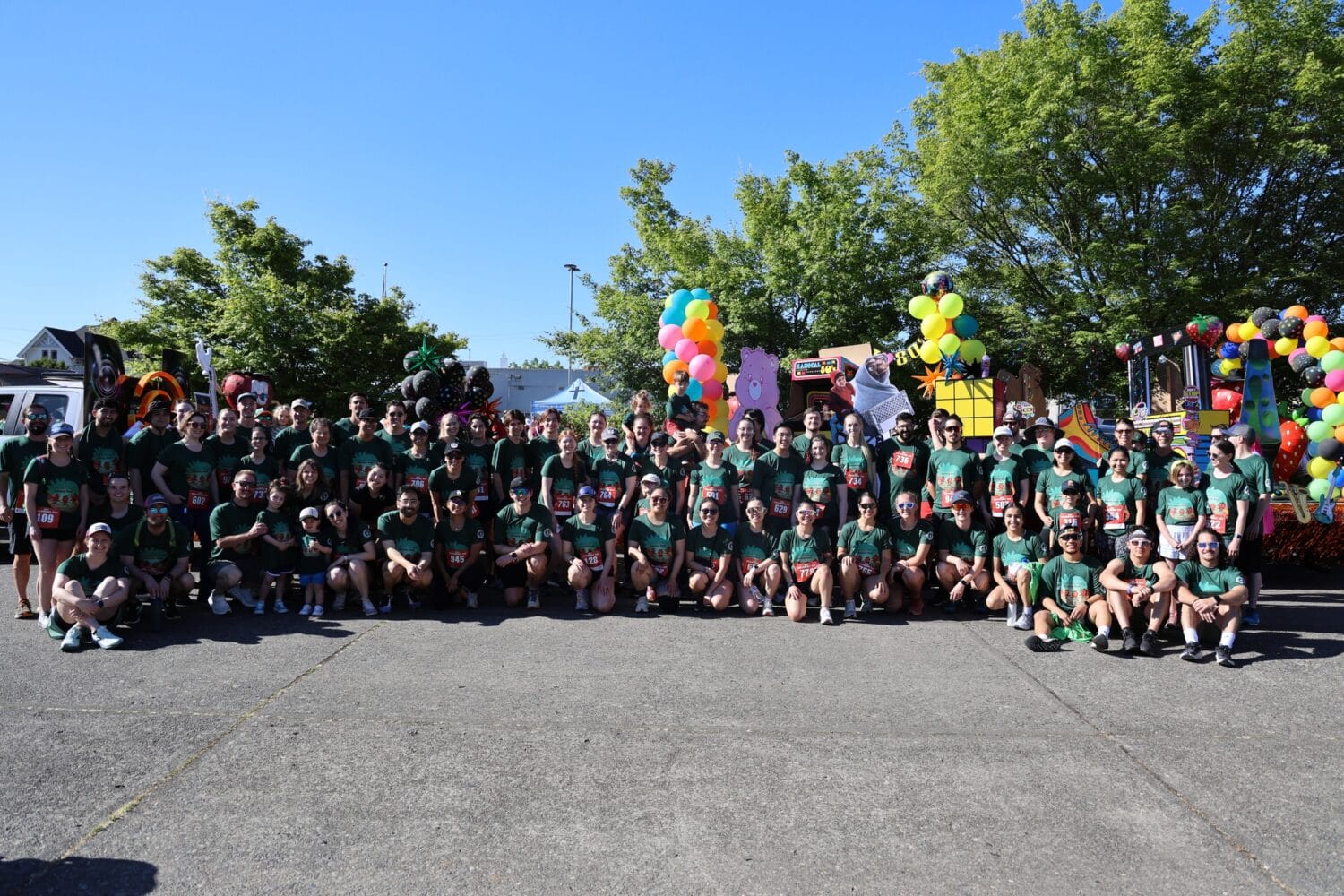WesternU students show resilience in completing research projects
Western University of Health Sciences students have displayed tenacity, flexibility and commitment to pursuing research amid the COVID-19 pandemic. Many students had to modify their original summer research projects or scrap them entirely and develop new ones that could be conducted while following COVID-19 safety protocols.
Twenty-seven students presented their research at WesternU’s annual Student Technology and Research Symposium (STRS) Nov. 7, 2020. The symposium is held each year to recognize and encourage WesternU students who perform research and scholarly activities during the summer and beyond on an array of different pre-clinical and clinical research topics in their field of education and interest, said WesternU Senior Vice President for Research and Biotechnology Devendra K. Agrawal, PhD, MBA, MS, FAAAAI, FAHA, FAPS, FIACS. Click here to view the STRS abstract booklet.
This year, more than 100 students, working independently or jointly with another student, were awarded the summer research stipend, trained and mentored by faculty in various WesternU colleges, Agrawal said.
“I congratulate all our summer research scholars on their incredible efforts in research and collaboration with their mentors/advisors, as reflected in their outstanding presentations and the abstracts,” he said. “In spite of significant challenges and constraints this year due to unprecedented crisis, their productivity shows the amazing resilience, tenacity, and ability to quickly adapt to the new work realities and find ways to continue forward in research and scholarly activity.”

Second-year College of Osteopathic Medicine of the Pacific student Audelia Arasheben, presented “Progression of Coronary Calcium and Incident CV Outcomes in Persons with ESRD.” Her initial research project was canceled due to the pandemic, but she was persistent and was able to find another laboratory that was working through the pandemic.
“I think research is fascinating. It really opens one’s eye to the millions of things we don’t know yet,” Arasheben said. “But besides the actual learning taking place from collecting data and analysis, the team involved in the research project is what really makes doing research so rewarding. It’s the team members that ask about progression of your project and question its validity. They help you think critically and logically. I think this is an important life skill to have, to be able to question your own work and adapt to changes.”
Presenting at STRS and conducting research provided lasting lessons, she said.
“Overall, I learned that research is not defined by a summer project or published manuscript, it’s a lifelong process of building knowledge and most importantly sharing the knowledge with others,” Arasheben said.

Second-year College of Veterinary Medicine student Madelaine Steevens initially planned to research “Morbidity and Mortality of Urban Wild Parrots in Southern California” by performing gross necropsies on parrots and parakeets in a WesternU lab. Instead, she brainstormed with her mentors, CVM faculty members Dr. Rhea Hanselmann and Dr. Curtis Eng, to create an observational research study, “Wild Parrots in the City: A case study of Parakeets in Point Loma, San Diego.” She conducted her research while sheltering in place in an area that has wild urban parrots and parakeets.
“Planning the project around my own safety during the pandemic was the No. 1 priority,” Steevens said. “I made sure that I socially distanced from others, I wore proper PPE while I was out in the field observing, and made sure to check and follow any other guidelines/recommendations from the CDC.
“Changing to a remote research project also inspired me to create and conduct a survey about the parrots and parakeets in my area that I could send throughout my neighborhood via email and social media,” she added. “I collected the results in order to compare and contrast them to my own observational data. Overall, the challenge of COVID-19 helped me learn how to adapt quickly and efficiently in a short time frame.”
Steevens said she wanted to present at the symposium because she is primarily interested in One Health.
“One Health involves working with other medical professionals in order to have optimal health for the environment, animals, and humans,” she said. “I think it is important for students who are involved in research to come together and share our findings even if it isn’t in the same field of research or interest. I am fairly new to conducting research so I learned a lot attending the STAR symposium including how to set up other types of research projects and various ways how to collect data remotely.”
Numerous students are planning to present their work at national and international conferences and are publishing their work in peer-reviewed journals, said COMP Associate Professor Hendrik Szurmant, PhD, chair of the WesternU Research Committee.
“Health care is never at a standstill and new knowledge derives from the research conducted at universities and companies across the country. Those students that embrace research as part of their education will become leaders in their respective fields, as they are not only consumers of this new knowledge but also creators,” he said. “Students, we are proud of your accomplishments and hope you will continue to pursue your love of research into your clinical years and beyond.”




